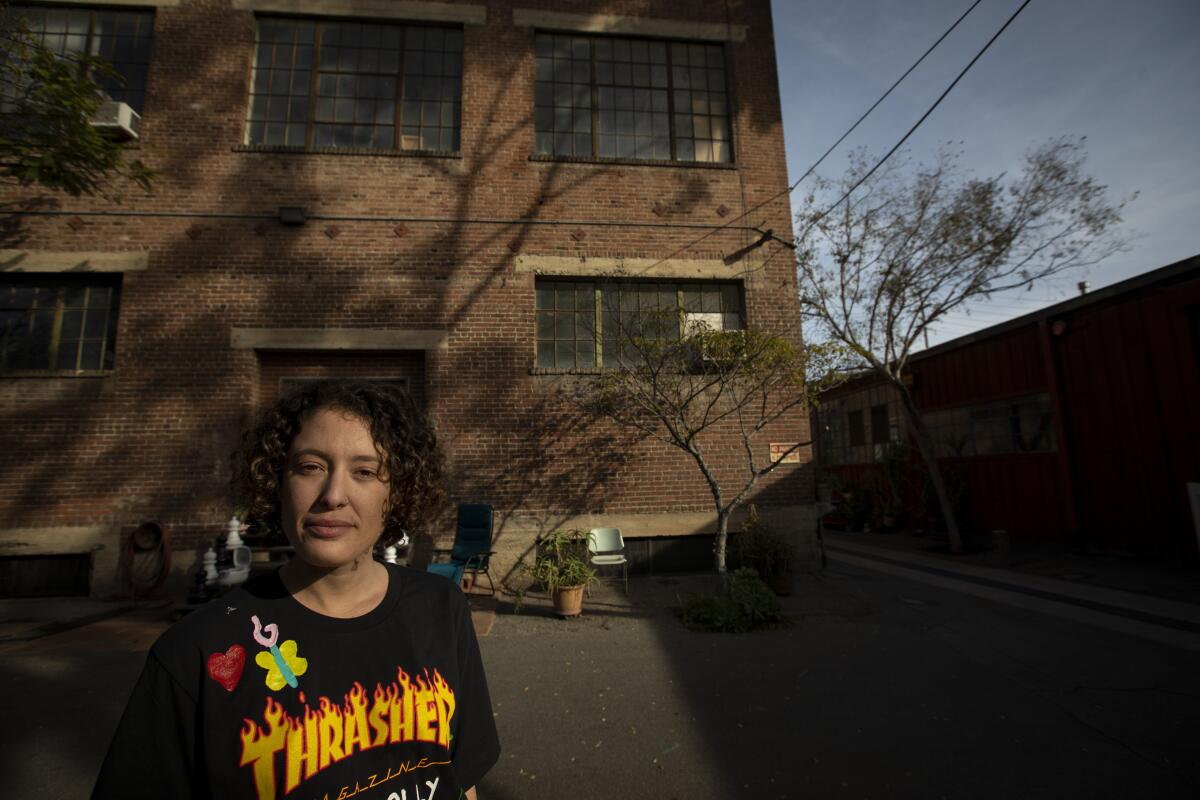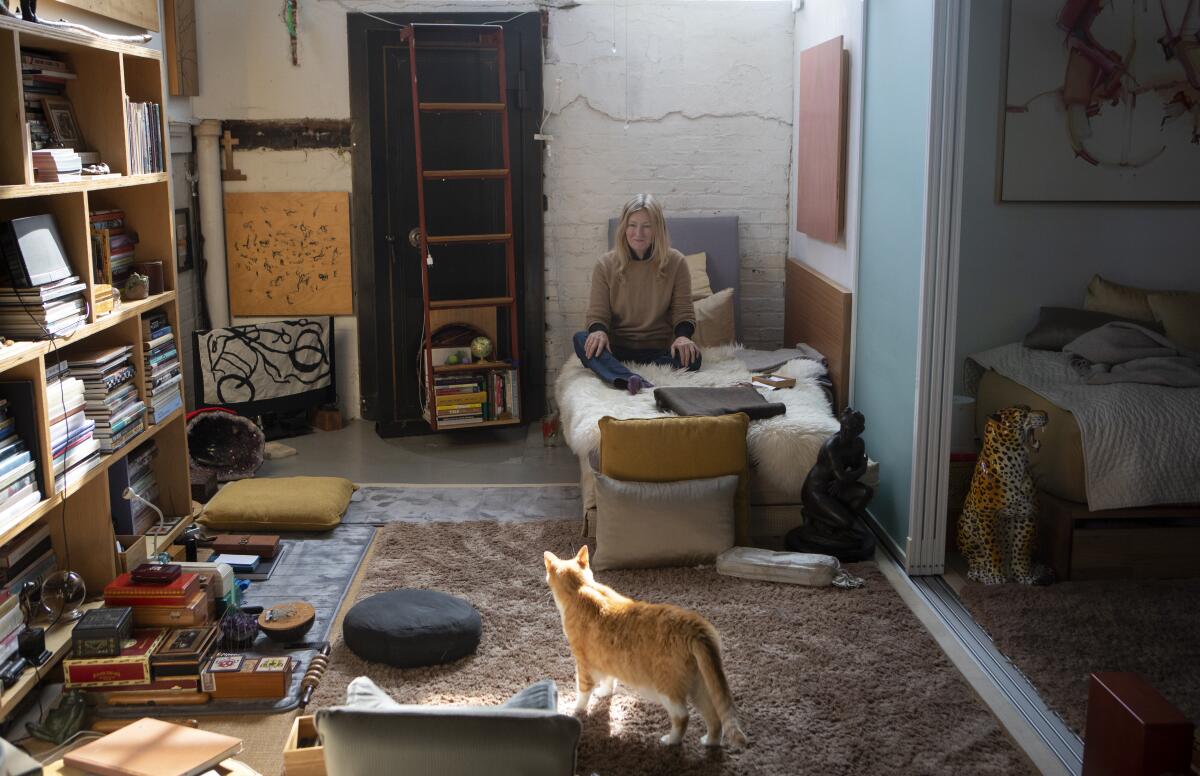Santa Fe Art Colony residents see ray of hope in fight against skyrocketing rents

Just a couple of months ago, residents of the Santa Fe Art Colony seemed in dire straits. A 30-year agreement that placed rent restrictions on most of the 57 units had expired, and the compound’s new owner, Miami-based Fifteen Group, was about to raise rents to market rate on Nov. 1 — in some cases tripling costs overnight. Tenants seemed left with little to do.
Then came Assembly Bill 1482.
Described by California Gov. Gavin Newsom as “the nation’s strongest statewide renter protection measure,” AB 1482 limits yearly rent increases to 5% plus inflation statewide, and it protects tenants against no-fault evictions. Landlords can raise rents before the bill goes into effect, but on Wednesday they are required to reset rents to the level of March 15, 2019.

To prevent exorbitant increases before the bill takes effect in the new year, L.A. passed the Emergency Renters Relief program. Renters facing increases of more than 8% can apply to the city to have it pay for three months of rent increases. “If a family was facing a 50% rent increase, for instance, the city would cover the amount equal to a 42% increase,” The Times explained in October.
When the Santa Fe Art Colony increases hit on Nov. 1, eight tenants paid their regular rent plus 8% and applied for the Emergency Renters Relief program to have the city cover the rest. Their rent checks were returned, however, and they were given three-day “pay or quit” notices from the property manager.
“Our landlord said they won’t accept partial rent payments,” said Sylvia Tidwell, longtime resident and head of the Santa Fe Art Colony Tenants Assn. “The manager is telling people we don’t qualify under 1482.”

But tenants appealed to the city and enlisted the help of the Housing Rights Center, a regional nonprofit fair-housing organization. The landlord relented and agreed to accept the aid from the city program provided it’s delivered at the same time as checks from the renters.
The tenants association also has filed a lawsuit against the owner for failing to comply with state code that enables tenants to make a bid to purchase the property. In July they offered Fifteen Group $16.8 million for the property, an offer that they said was not considered in good faith.

“The law requires them to accept an offer, negotiate market value amount and sell, or declare that they won’t sell for five years,” Tidwell said.
City Councilman Jose Huizar wrote a Dec. 10 letter to Fifteen Group supporting the tenants. “I highly encourage you to consider their offer in order to preserve the affordable housing rights,” it said.
Fifteen Group has not responded to requests for comment. A Nov. 5 letter to Tidwell from Amy Forbes, a lawyer for Fifteen Group, said, “Your rent will continue at the same amount past January 1, 2020, because the restrictions on rent set forth in Government Code 1947.12 do not apply to these initial rents,” referring to the provision of AB 1482 that rolls back rents to March 15 levels. Forbes also did not respond to a request for comment.
“The city deemed us eligible for 1482 at the old rent, and they told the owner that,” Tidwell said. “The tenants need to be prepared for a fight.”
“We could file a lawsuit to have the court determine that the city is correct,” said Elena Popp, the executive director of the Eviction Defense Network, a statewide renters’ rights group. “The other option is for the tenants to follow the law and pay March level plus inflation. The landlord will decide whether they want to go through with eviction.”
Communities need to gain more control over housing, she said, “because greed will always find a way to get around the law.”

More to Read
The biggest entertainment stories
Get our big stories about Hollywood, film, television, music, arts, culture and more right in your inbox as soon as they publish.
You may occasionally receive promotional content from the Los Angeles Times.










